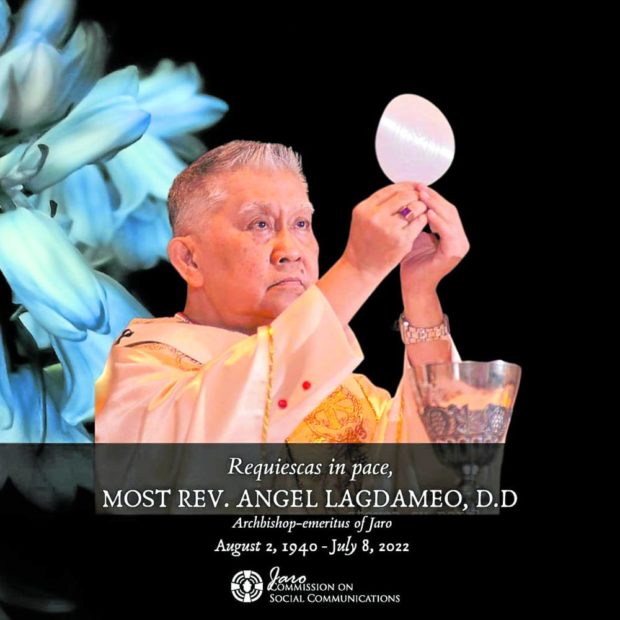
CEBU CITY, Philippines — A visionary leader and someone who was gifted with a sense of humor.
This was how Catholic bishops in country described Archbishop emeritus Angel Lagdameo of Jaro. Lagdameo, who was also the former president of the Catholic Bishops’ Conference of the Philippines (CBCP), passed away on Friday, July 8. He was 81.
READ: Former CBCP president Lagdameo passes away at 81
In a news letter published on the official website of the CBCP, Bishop Pablo Virgilio David, the current CBCP president, described Lagdameo as a “very jolly man” who “humanized” the church hierarchy under his leadership.
“He can easily dissipate tensions. He was very good at conflict management and very pastoral also in his approach. He will be remembered very fondly,” David said.
Moreover, Bishop Gerardo Alminaza of San Carlos said Lagdameo led the bishops’ collegial body at a “challenging time” and “he really stood up then.”
Alminaza praised Lagdameo’s auxiliary bishopship and “empowering” leadership style.
“He treated me as his equal and a brother. I had no difficulty accompanying him in really bringing forward the church in Jaro together,” he said.
According to Alminaza, lay ministry and participation in the archdiocese “blossomed” under Lagdameo’s leadership.
“He was very systematic and yet very personal… he takes time to listen. So in a way, he really paved the way for the archdiocese to becoming a truly synodal Church,” he added.
For Auxiliary Bishop Midyphil Billones of Cebu, Lagdameo never lost his sense of humor and willingness to find humanity in adversaries.
Billones was Lagdameo’s secretary in Jaro for six years before he was sent to Rome to further his education.
“Archbishop Lagdameo’s gift is a sense of humor, which for me is a sign of holiness… a character of deep faith and trust in God,” Billones said.
During his term as CBCP president, Lagdameo issued over 30 pastoral letters on various subjects to instruct and guide the faithful.
It was also under his leadership that the CBCP News Service went live in 2007, ten years after the bishops’ Permanent Council approved its creation. / dcb